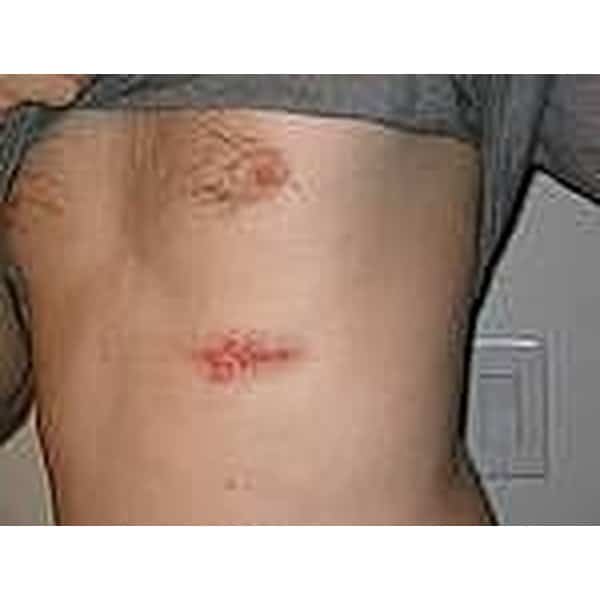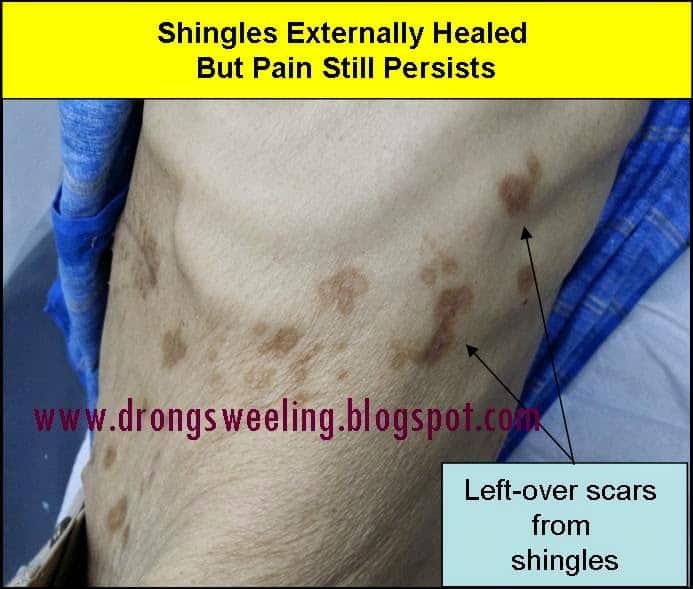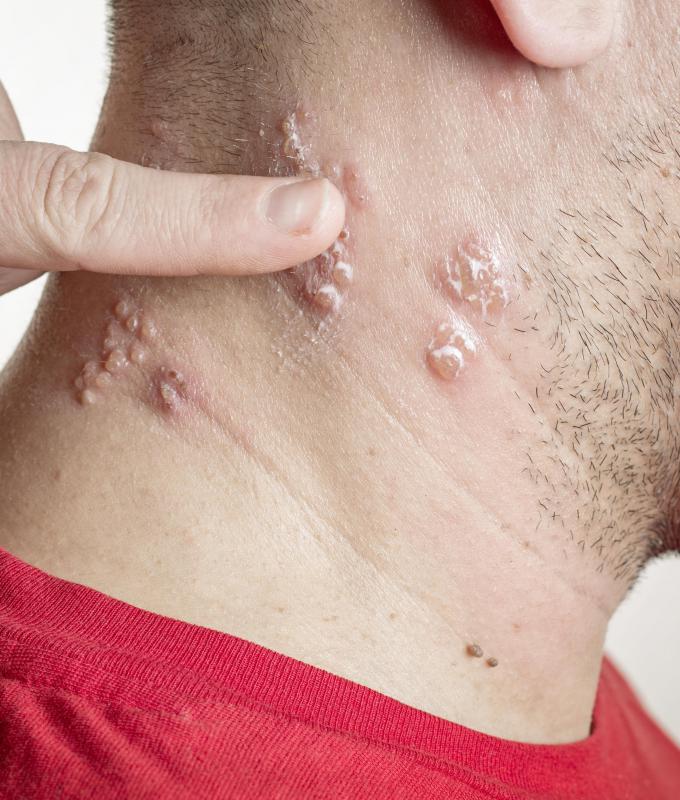Questions To Ask Your Doctor
- Ive had chickenpox. Am I at risk of developing shingles?
- What is the best treatment for my shingles?
- The pain from shingles isnt going away. What can I do to make myself more comfortable?
- Im on treatment for shingles. When should I call my doctor if things dont get better?
- I have shingles and my children havent had the chickenpox vaccine. Should I get them vaccinated?
- Is the shingles vaccine right for me?
- Are there any risks associated with the shingles vaccine?
- Will my post-herpetic neuralgia ever go away?
- If Ive never had the chickenpox, should I still get the shingles vaccination?
What Are Some Common Treatments For Shingles
The CDC recommends that adults 50 years or older receive two doses of the shingles vaccine. Additionally, several antiviral medicines like acyclovir, valacyclovir, and famciclovir are available to treat shingles and shorten the length and severity of the illness. These medicines are most effective when taken immediately after the rash appears.
When Should I See My Doctor
See your doctor as soon as possible if you are experiencing any symptoms of shingles. Starting treatment with antiviral medicines within 3 days of the rash appearing should reduce the severity of symptoms and the risk of further complications, including post-herpetic neuralgia.
See your doctor straight away if you have symptoms of shingles and are experiencing the following:
- symptoms that affect your eye area
- a temperature of 38°C or higher
You should also see your doctor if you are pregnant, or have a weakened immune system due to medicine that suppresses the immune system, or a condition that weakens your immune system.
Read Also: How Long Are Shingles Good For
When Should I See A Doctor Because Of The Side Effects I Experience From Shingrix
Shingrix causes a strong response in your immune system, so it may produce short-term side effects. These side effects can be uncomfortable, but they are expected and usually go away on their own in 2 or 3 days. You may choose to take over-the-counter pain medicine such as ibuprofen or acetaminophen. Contact your healthcare provider if the symptoms are not improving or if they are getting worse.
In clinical trials, Shingrix was not associated with serious adverse events. In fact, serious side effects from vaccines are extremely rare. For example, for every 1 million doses of a vaccine given, only one or two people might have a severe allergic reaction. Signs of an allergic reaction happen within minutes or hours after vaccination and include hives, swelling of the face and throat, difficulty breathing, a fast heartbeat, dizziness, or weakness. If you experience these or any other life-threatening symptoms, see a doctor right away.
Skin Care And Itch Relief For Shingles

To relieve itching and discomfort, try:
- A cool, wet compresses on the affected skin
- Soothing baths and lotions, such as colloidal oatmeal bath, starch baths, or calamine lotion
- Zostrix, a cream that contains capsaicin
- Antihistamines to reduce itching
Keep your skin clean. Throw away bandages you use to cover your skin sores. Throw away or wash in hot water clothing that has contact with your skin sores. Wash your sheets and towels in hot water.
While your skin sores are still open and oozing, avoid all contact with anyone who has never had chickenpox, especially pregnant women.
Read Also: Topical Cream For Shingles Over The Counter
Urgent Advice: Get Advice From 111 As Soon As You Suspect Shingles
You might need medicine to help speed up your recovery and avoid longer-lasting problems.
This works best if taken within 3 days of your symptoms starting.
111 will tell you what to do. They can arrange a phone call from a nurse or doctor if you need one.
Go to 111.nhs.uk or .
Get an urgent GP appointment
A GP may be able to treat you.
Ask your GP surgery for an urgent appointment.
How Do Dermatologists Treat Shingles
An antiviral medication can:
-
Reduce the amount of time that you have a shingles rash
-
Lower your risk of developing long-lasting nerve pain and other health problems
One of three antiviral medications is usually prescribedacyclovir, famciclovir, or valacyclovir.
To treat your symptoms, dermatologists typically recommend the following:
Pain: Medication that you can buy without a prescription can help, such as:
If you have severe pain, your dermatologist may prescribe a medication that reduces inflammation, such as a corticosteroid.
Don’t Miss: How Long Dies Shingles Last
Tingling Pain Or Numbness
During the first stage of shingles, before anything appears on your skin, a particular area of your body may begin to feel different. “When a shingles outbreak is starting, you may feel itching, burning, or pain,” Kim says. Often you will feel this on only one side of your body.
The initial signs of shingles may feel different for each person. In some cases, shingles can cause intense sensitivity, making it painful to even wear clothes over your skin, while in other cases, your skin may feel numb.
How Is It Treated
It is best to start treatment as soon as possible after you notice the rash. See your healthcare provider to discuss treatment with antiviral medicine, such as acyclovir. This medicine is most effective if you start taking it within the first 3 days of the rash. Antiviral medicine may speed your recovery and lessen the chance that the pain will last for a long time.
Your provider may also recommend or prescribe:
- medicine for pain
- antibacterial salves or lotions to help prevent bacterial infection of the blisters
- corticosteroids
Recommended Reading: Does Rite Aid Give Shingles Shots
What You Can Do To Help Recover From Shingles
There is no cure for shingles, but there are medications, including antiviral medications, such as acyclovir or valacyclovir, to help fight the infection.
While your shingles is active, you should:
- Rest and relax. Try moderate activities, such as walking and listening to music that can help take your mind off the pain. For severe pain, your doctor may prescribe narcotic pain relievers, corticosteroids, and anticonvulsants.
- Wear loose-fitting clothes.
- Keep the rash clean and dry. Do not cover it or use ointments, which can prevent the blisters from bursting and beginning to scab over.
- Try cool compresses, calamine lotion, or an oatmeal bath to ease the itching and pain of the rash.
- Dont share bedding, clothing or towels in order to avoid spreading the infection while you have blisters.
There are effective vaccinations available to prevent shingles, so if you have had chickenpox, talk with your healthcare provider about getting protected from shingles.
When Should People Seek Medical Care For Shingles
If people develop pain and/or a rash in a band on one side of the body or face, they should seek medical care is as soon as possible as treatments may reduce the pain and any possible further nerve or eye problems. If the rash occurs near the nose or eyes, they should seek emergency medical care. Individuals with a medical problem or taking medication that decreases their immune response should seek help immediately if they suspect they may be developing shingles.
Children should be vaccinated against chickenpox and older individuals should discuss the shingles vaccine with their doctors to reduce the risk of developing shingles.
Read Also: Side Effects Of Second Shingles
How Long Does Postherpetic Neuralgia Last
Postherpetic neuralgia can last for weeks, months, or in some people, years after the shingles rash goes away. In most people, shingles pain goes away in one to three months. However, in one in five people, pain lasts more than one year.
The pain from PHN can be so severe in some people that it disrupts their life. Researchers dont know why some people have severe or long-lasting pain and others do not.
Antiviral Medicines For Shingles

Antiviral medicines used to treat shingles include aciclovir, famciclovir and valaciclovir. An antiviral medicine is not a cure for shingles, it does not kill the virus but works by stopping the virus from multiplying. So, it may limit the severity of symptoms of the shingles episode.
An antiviral medicine is most useful when started in the early stages of shingles . However, in some cases your doctor may still advise you have an antiviral medicine even if the rash is more than 72 hours old – particularly in elderly people with severe shingles, or if shingles affects an eye.
Antiviral medicines are not advised routinely for everybody with shingles. As a general rule, the following groups of people who develop shingles will normally be advised to take an antiviral medicine:
- If you are over the age of 50. The older you are, the more risk there is of severe shingles or complications developing and the more likely you are to benefit from treatment.
- If you are of any age and have any of the following:
- Shingles that affects the eye or ear.
- A poorly functioning immune system .
- Shingles that affects any parts of the body apart from the trunk .
- Moderate or severe pain.
If prescribed, a course of an antiviral medicine normally lasts seven days.
Read Also: Can You Have A Fever With Shingles
How Do Dermatologists Diagnose Shingles
A dermatologist can often diagnose shingles by looking at the rash on your skin.
If there is any question about whether you have shingles, your dermatologist will scrape a bit of fluid from a blister. This will be sent to a lab where a doctor will look at the fluid under a high-powered microscope.
When you have shingles, the fluid contains the virus that causes shingles. Seeing the virus confirms that you have shingles.
Your dermatologist will also ask about your symptoms. Shingles tends to be painful.
When the shingles rash spreads to an eye, it can affect your eyesight
You can reduce this risk by seeing an ophthalmologist immediately.
Who Should Get The Shingrix Vaccine
The Shringrix vaccine is recommended in healthy adults age 50 and older. There is no maximum age. You should get the vaccine even if:
- Youve had shingles.
- Youre not sure if youd had chickenpox .
- Youve already had the Zostavax vaccine. This vaccine for shingles is no longer available in the U.S. Ask your healthcare provider about the best time to get the Shingrix vaccine.
If you currently have shingles, you need to wait until the shingles rash has gone away. Talk with your provider about the proper time to begin vaccination with Shingrix.
Recommended Reading: What Cream Can I Put On Shingles
Can Other People Catch Shingles
This one is confusing! You can catch chickenpox from other people, but you can’t catch shingles from other people. You only get shingles from a reactivation of your own chickenpox infection in the past.
So if you have shingles, and you come into contact with somebody else, they cannot ‘catch’ your shingles. But if they have never had chickenpox, it is possible that they could catch chickenpox from you.
To put it another way, no, you don’t ‘catch’ shingles. It comes from a virus hiding out in your own body, not from someone else. But if you have shingles, you may be infectious, as it is possible for people to catch chickenpox from you.
Only people who have never had chickenpox are likely to be at risk of catching chickenpox from your shingles. People who have had chickenpox should be immune from catching it again. If the rash is in a covered area of skin, the risk of anyone with whom you are not in close contact catching chickenpox is very low.
Can Eye Shingles Cause Blindness
Even with proper treatment, some eye shingles patients still develop eye disorders such as corneal scarring, glaucoma or retinal disease.
For example, eye shingles can cause:
-
A corneal dendrite which may lead to a scar
In the most severe cases of eye shingles, a patient may need a corneal transplant.
Eye shingles is not contagious. It cannot be spread to another person.
However, a person who has shingles-related rash anywhere on their body can transmit chickenpox virus to someone who hasn’t already had chickenpox or been vaccinated for the condition.
Also Check: Is Nausea A Symptom Of Shingles
What Can I Take To Feel Better
Your doctor has a host of ways to treat your pain after shingles, including a variety of medications. They include:
Anticonvulsants: These medications were developed to control seizures, but they can also help reduce the pain of postherpetic neuralgia. Examples are:
Talk to your doctor or pharmacist about side effects of any new prescription or over-the-counter medication.
Is The Condition Curable
There is no cure for shingles, but attacks can be rendered less severe and their duration shortened with the use of prescription antiviral drugs.
Several antiviral medicinesacyclovir, valacyclovir, and famciclovirare available to treat shingles and shorten the length and severity of the illness. These medicines are most effective if you start taking them as soon as possible after the rash appears. If you think you have shingles, contact your healthcare provider as soon as possible to discuss treatment.
Pain medicine, either over-the-counter or a prescription from your doctor, may help relieve the pain caused by shingles. Wet compresses, calamine lotion, and colloidal oatmeal baths can also help relieve itching.
Recommended Reading: What Are The Home Remedies For Shingles
Who Is At Risk Of Getting Postherpetic Neuralgia
Factors that increase the risk of developing postherpetic neuralgia include:
- Older age: The chance of developing postherpetic neuralgia increases with age. If youre older and develop shingles, youre more likely to develop PHN and have longer lasting and more severe pain than a younger person with shingles. About 10 to 13% of people over age 50 who have had shingles will get PHN. People under age 40 rarely get PHN.
- Weakened immune system: Your immune system weakens as you get older, which allows the inactive varicella-zoster virus to become active again and cause shingles in some people. Medical conditions that can weaken your immune system include cancer, chronic infectious diseases , being an organ transplant recipient or taking medications that weaken your immune system .
- Severity of your shingles: If you have a severe rash, you have a greater chance of PHN.
- Painful, itchy or tingly feeling before shingles rash: If you had these symptoms in an area of skin a few days before your shingles rash broke out, you are at higher risk of PHN.
- Waiting to see your healthcare provider after shingles rash: If you wait longer than three days after your rash appeared missing the window to receive antiviral drugs you have an increased chance of PHN.
What Does Early Stages Of Shingles Look Like

Shingles progress through several stages as the virus replicates in your body. Shingles start as a rash with red bumps, known as papules, distributed most frequently over your back and torso.
Within several days, grouped blisters are present. Within seven to ten days, the vesicles dry up and crust.
The early stage of shingles looks like small, red, raised, solid pimples or an inflamed rash. These are tiny, raised bumps on the skin. Eventually, these bumps blister and later crust. The beginning stages of shingles create tingling and localized pain.
The early stages of shingles are also described as itching, burning, or deep pain. People who have had shingles also described the early stages as similar to the beginning of the flu.
Read Also: Do I Need A Shingles Shot
Can I Prevent Shingles
There are two shingles vaccines. Shingrix is recommended over the older vaccine, Zostavax, because it is more than 90% effective in preventing a shingles outbreak
Who should get it: The CDC recommends that you get this vaccine if youâre a healthy adult age 50 or older, whether or not you remember having had chickenpox, because most people have been exposed to the virus. If you have had the Zostavax vaccine, you can also have Shingrix.
How many shots do you need? You would need two shots for Shingrix: One at first, with a follow-up in 2 to 6 months.
What it does:Shingrix reduces your chance of getting shingles by more than 90%. Even if you still get shingles, the vaccine may help it be less painful.
I never had chickenpox. Do I still need the shingles vaccine? Yes, you do. Shingrix is recommended for everyone age 50 or older, whether or not you remember having had chickenpox.
If Iâve had shingles, can I still get the vaccine? Yes. It may help prevent you having another bout of shingles later on. If you have shingles right now, you should wait until the rash is gone before you get vaccinated.
Donât get the Shingrix vaccine if you:
- Are allergic to any of the ingredients
- Are pregnant or nursing
- Have tested negative for immunity to the chickenpox virus. Ask your doctor about the chickenpox vaccine instead.
- Have shingles now
Who Is At Risk For Shingles
About 1 in 3 Americans will develop shingles in their lifetime, according to the Centers for Disease Control and Prevention . Cases are more common in older adults, but doctors say even children get shingles.
Shingles is caused by varicella zoster virus , the same virus that causes chickenpox. After a person recovers from chickenpox, the virus stays dormant in their body. The virus can reactivate later, causing shingles.
“Not everyone who had chickenpox will develop shingles,” Wigand-Bolling noted.
Two other things to keep in mind: You cannot get shingles from someone who has shingles, the CDC says. However, you can get chickenpox from someone who has shingles if you’ve never had chickenpox or never received the chickenpox vaccine.
Read Also: How Do You Get Rid Of Shingles Pain